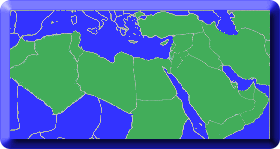
Topics in Middle Eastern and North African Economies
Document Type
Article
Publication Date
5-1-2021
Journal Title
Topics in Middle Eastern and North African Economies
Volume
23
Issue
1
Publisher
Middle East Economic Association and Loyola University Chicago
Abstract
This paper revisits Okun’s law under an asymmetric approach for Turkey applying structural threshold regression model that allows for endogeneity of the threshold variable that separates the dataset into low and high regime periods according to economic growth. Moreover, the theory is investigated taking subcategories of unemployment rate into account, such as age, education and gender. Empirical findings suggest that only the overall unemployment rate and female unemployment rate reflect significantly negative impacts in both periods. During deep recessions, unemployment rates are more responsive to economic growth. In order to consider nonlinearities, Kourtellos et al. (2016) structural threshold regression (STR) model is employed. STR model estimates the threshold parameter and it is not known which observation belongs to which regime. In addition to the threshold variable, the model allows the regressors to be endogeneous. This methodology also allows for regime-specific heteroskedasticity.
ISSN
2334-282X
Recommended Citation
Deniz, Pınar and Dogan, F. İrem, "Asymmetric Analysis Of Okun’s Law: The Case For Turkey". Topics in Middle Eastern and North African Economies, electronic journal, 23, 1, Middle East Economic Association and Loyola University Chicago, 2021, http://www.luc.edu/orgs/meea/
Creative Commons License

This work is licensed under a Creative Commons Attribution-Noncommercial-No Derivative Works 3.0 License.
Copyright Statement
© The Author(s), 2021



Comments
Presentation of the articles in the Topics in Middle Eastern and North African Economies was made possible by a limited license granted to Loyola University Chicago and Middle East Economics Association from the authors who have retained all copyrights in the articles.